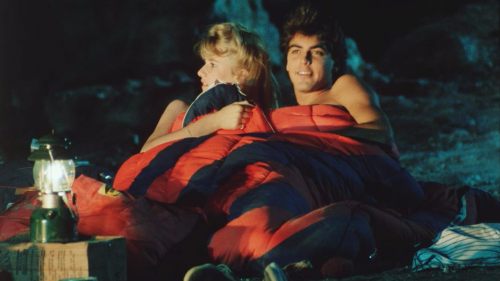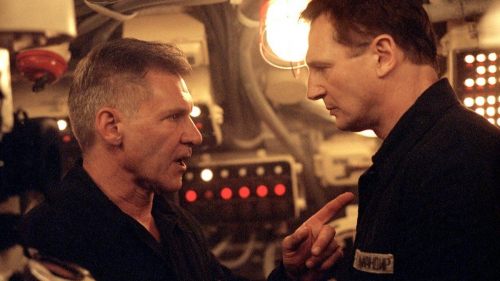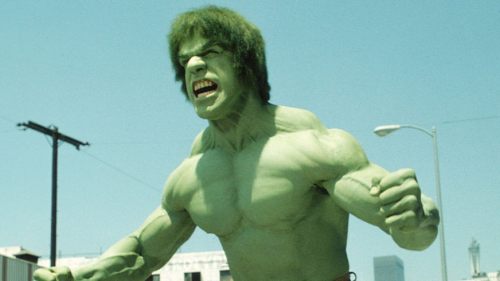Monster Fest 2016: Andrzej Zulawski’s ON THE SILVER GLOBE Confounds And Astounds
Here at BMD, we really love the late Polish director Andrzej Zulawski’s most popular film, Possession. But thanks no doubt to its status as Zulawski’s only English-language release, Possession is the director’s only film that gets regular respect in the West. It’s a shame, because the more you see of Zulawski, the more his unique style and approach grows on you.
To wit: I saw Zulawski’s once-lost science fiction epic On The Silver Globe at Monster Fest in Melbourne last weekend, and loved it - in a completely different way to how I love Possession. This was actually the second time I had seen the film, after witnessing it on the final night of Fantasia Fest earlier in the year. Both screenings kept me fully conscious and alert for two hours and forty-five minutes, despite my being near burnt-out on movies going in. If anything, the second viewing helped solidify my feelings on the movie, which ranks among the most unique films in a genre filled with unique films.
Zulawski adapted the film from The Lunar Trilogy, written by his own uncle - a series of novels which, despite inspiring sci-fi greats like Stanislaw Lem to write science fiction, have yet to be translated into English. The narrative is sprawling and epic in the true sense of the word, taking place over an undetermined time period and exploring deep and complex ideas. With a story that encompasses the origins of civilisation, religion, love, and war, starting from a crashed space capsule, it’s easy to get swallowed up in its sheer scale. There are, ostensibly, two protagonists, tag-teaming out at the film’s midpoint, but they serve a primarily functional purpose; humanity itself is the main character here.
Typical of Zulawski’s work, the performances in On The Silver Globe are operatic and unhinged, the characters frequently bellowing their existential quandaries to the heavens. When the odd quiet scene arrives, you can feel the audience exhale, letting out the tension that comes from watching lengthy sequences of wailing and screaming. The cast must have finished each shoot day exhausted, having put themselves through the gamut of primal human experiences, often under enormous costumes and heavy makeup. In many scenes, the cast expound upon the film’s ideas at length, playing at 150% to turn pages of dense philosophising into drama. Without speaking Polish, it’s difficult to tell if the obtuse dialogue is that way intentionally or merely as a by-product of translation.
If this doesn’t sound much like a science fiction film, either you haven’t seen many eastern European sci-fi films, or I’ve neglected to mention On The Silver Globe’s grand, apocalyptic production design. This is a film that can casually cut between sets seemingly cobbled together from driftwood to abandoned brutalist Soviet industrial buildings full of ancient-looking electronics. Samurai-esque horse-riding warriors share the screen with space suits and goofy proto-Mad Max vehicles. Explosions rock beachfront hovels. Creepy mutant creatures infest underground cities. Crazily ambitious war scenes break out in battered cities ridden with detritus. People get crucified or rectally impaled on huge wooden poles. Zulawski created an entire tribal culture and a worn-down futuristic empire, and he shot it all with his trademark inventive, freewheeling camerawork. One lengthy survival sequence, ostensibly filmed entirely with spacesuit flight recorders, predicts the rise of the found footage genre some 25 years later. God, this movie, you guys.
Sadly, Zulawski’s vision was never fully realised. On The Silver Globe was shut down by the Polish government, mid-production, in late 1977, due in part to Zulawski’s political leanings and the film’s perceived political allegory. The sets, costumes, and props required for the remaining 20 percent of the film were all ready to go, but simply got buried - some literally.
Zulawski only managed to bring the film to some degree of completion ten years later, in 1987, by inserting voiceover sequences throughout the movie wherein the director himself narrates the contents of the missing scenes. These sequences serve several purposes, in the end. They help ground the story, clarifying what the hell is going on in an increasingly abstract narrative. They spark the imagination as to the film that could have been, with elaborate descriptions of scenes that sound impossible to shoot. And in the film’s final moments, the footage of Warsaw circa 1987 over which the voiceover plays comes to a shot of Zulawski reflected in a shop window, staring into the camera. It’s a fitting conclusion to a film that feels like a deeply personal statement, both in front of and behind the camera.
On The Silver Globe is a complete history, celebration, and condemnation of humankind. It’s an unfinished film that nevertheless stands up as an astonishing work of cinema. One can only imagine how influential it would have been had it been completed and released as intended. Shot the same year Star Wars came out, it feels much like Jodorowsky’s Dune in that it could have completely upended the popular vision of sci-fi, had it been given a proper chance. As it is, all we have is this 2-hour, 44-minute near-masterpiece, recently remastered and sure to receive a Blu-Ray release at some point in the near future.



